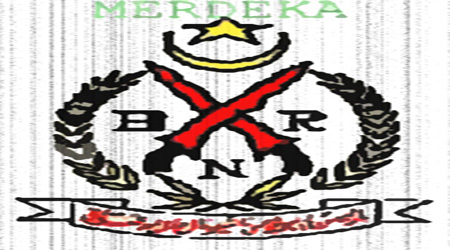More to know than the BRN’s five demands
The 38-page English-language document of the Barisan Revolusi Nasional (BRN) contains not just the five key demands that are already well known but also several other interesting sub-demands and conditions some of which require parliamentary approval.

The Isranews team has access to a copy of the document and the followings are some of the information that the team would like to share with its readers so that they can consider them.
The first demand states that the peace talk must be between the Thai kingdom and a representation of the Patani Malay liberation fighters led by the BRN. This demand is based on the following grounds: The BRN is the representative of the Patani Malay nation or bangsa; the BRN is the protector of the rights and interests of the Patani Malay nation; and the BRN is the caretaker of the affairs and wishes of the Patani Malay nation.
This demand is said to correspond with Articles 32, 33, 45,46, 63,64 and 65 of the Thai Constitution.
The BRN insists that it is not a separatist movement because it does not want the Deep South to be separated from the Thai kingdom. But it just wants freedom in religious practice, the use of language, Islamic way of life, rights and freedom in justice, rights to safety free from intimidation or coercion from state officials and the rights to be treated as Thai people.
The BRN demands that all its 15 peace negotiators are free from arrests and have freedom of movements in and out of Thailand for the purpose of peace negotiations.
In exchange for this first demand, the BRN agrees to cease all operations against soft targets which include unarmed civilians, officials and teachers, economic targets in communities, factories and shops. This agreement will become immediately effective once the government accepts the demand.
NumberTwo demand that Malaysia be made the mediator instead of the facilitator. The role of Malaysia in this new status is: to supervise the peace talks and to ensure the success; to ensure recognition and confidence from Patani Malay people and international community and to mediate conflict. This demand is said to correspond with Article 82 of the Constitution.
In exchange for the government’s acceptance of this demand, the BRN agrees to stop all attacks against teacher’s protection units on the condition that police and soldiers of the units be replaced by defence volunteers and that troops must be moved out of all economic zones and replaced by private security guards. This demand is implemented in accordance with the timeline.
Number Three demand states that the peace talks must be witnessed by representatives of Asean, Organisation of Islamic Conference and NGOs. This is in accordance with Article 82 of the Constitution.
In exchange for this demand, the BRN agrees to do its utmost in the search for resolutions in future meetings.
Number Four demand states that the Thai government recognizes the existence and supreme power of the administration of Patani Malay nation on the Patani territory. The BRN has reasoned that the root of the conflict stems from the occupation of Patani Malay and that it wants self-determination.
Details of this demand are as follows: that the government must recognize the Patani Malay nation with parliamentary approval; that the government must allow the Patani Malay people to set up a special administrative region in Thai territory similar to Bangkok Metropolitan Administration or Pattaya City.
Details about the right of self-determination which will be further discussed must include the following elements: the recognition of Patani Malay community; the modality of special administrative region; a special representative in the parliament; the governor the special administrative region; the administration of troops or police movement in the region; quota of official positions in the region; youth affairs; press freedom; revenue sharing and property in the region; and education.
In exchange for the acceptance of this demand by the government, the BRN agrees to: cease all military operations; to observe a ceasefire which will become effective in 2015; to cease all operations against army troops; troops form the 4th army region and local police can set up bases in the region but their sizes must be limited and no bases in the villages.
Prior to the ceasefire, the BRN agrees to stop all operations according to the following timeline: In Songkhla starting in January 2014; in Yala starting in April 2014; in Narathiwat starting in July 2014 and in Pattani starting in October 2014.
Number Five demand states that all detainees on security-related charges be released and all arrest warrants withdrawn with ten detainees be released and ten warrants withdrawn every month.
In exchange for this demand, the BRN agrees to cease operations in accordance with the timeline above mentioned.
General Akkanit Moensawat, former chief of the border coordination centre of the Army, dismissed the BRN’s promises to cease all military operations and the aspiration for a separate homeland as untrustworthy.
He doubted that the BRN only wanted a special administrative region administration. He also questioned the BRN’s capability to command all separatist groups in the far South.
"The peace process is all wrong. No where in the world that all the demands are announced publicly whereas they are yet to be negotiated. The truth is the talks must be completed first and demands settled first. More importantly, there must be a roadmap about what next to be done after the agreement," said the retired general.
